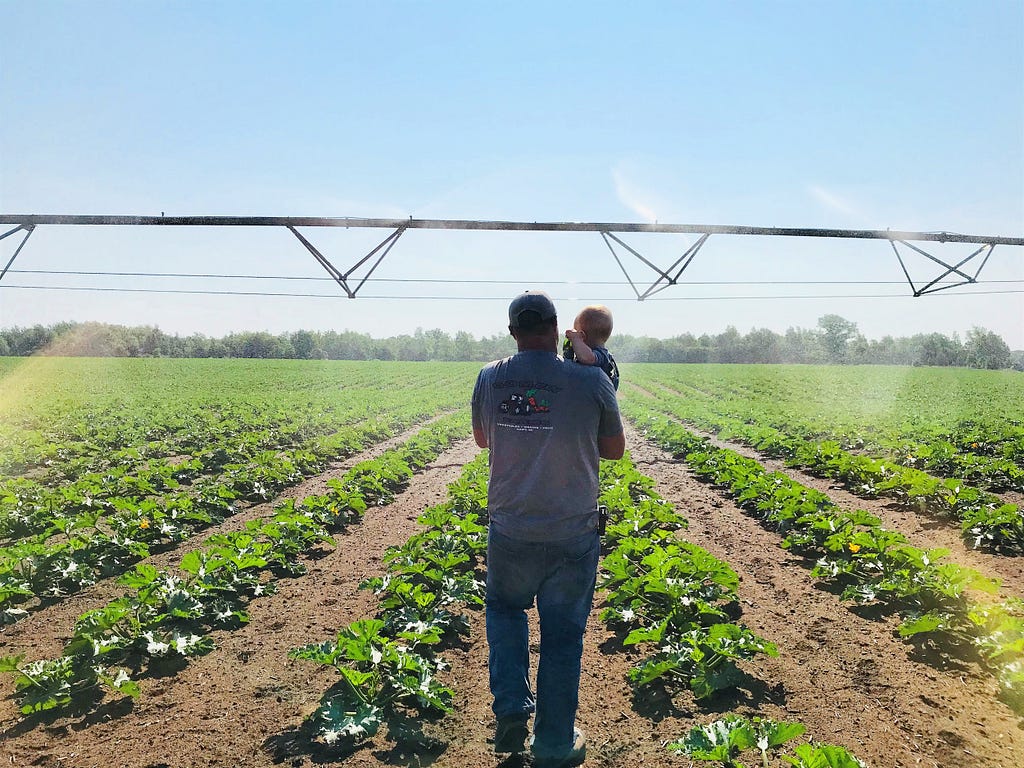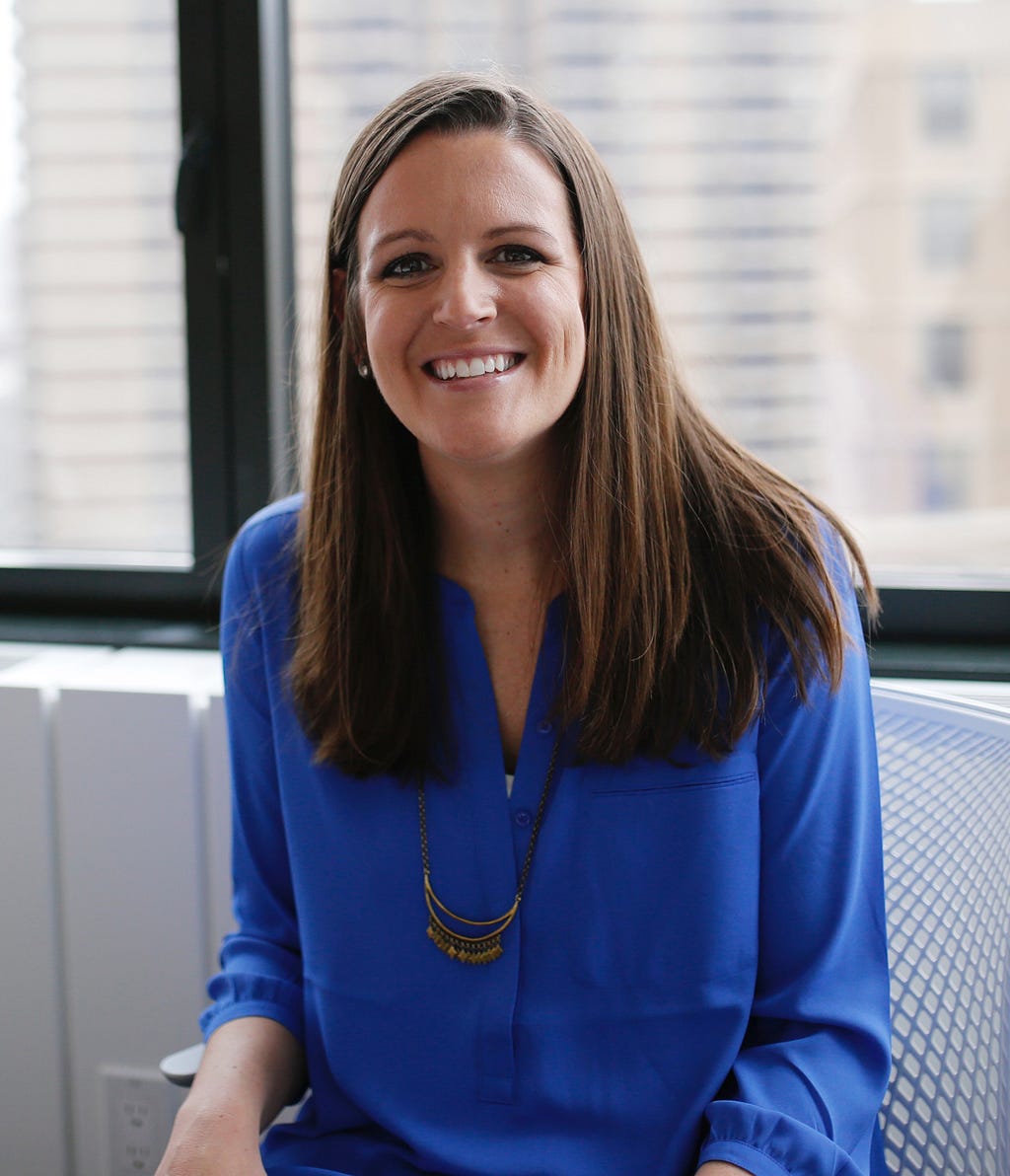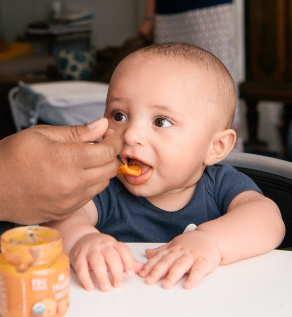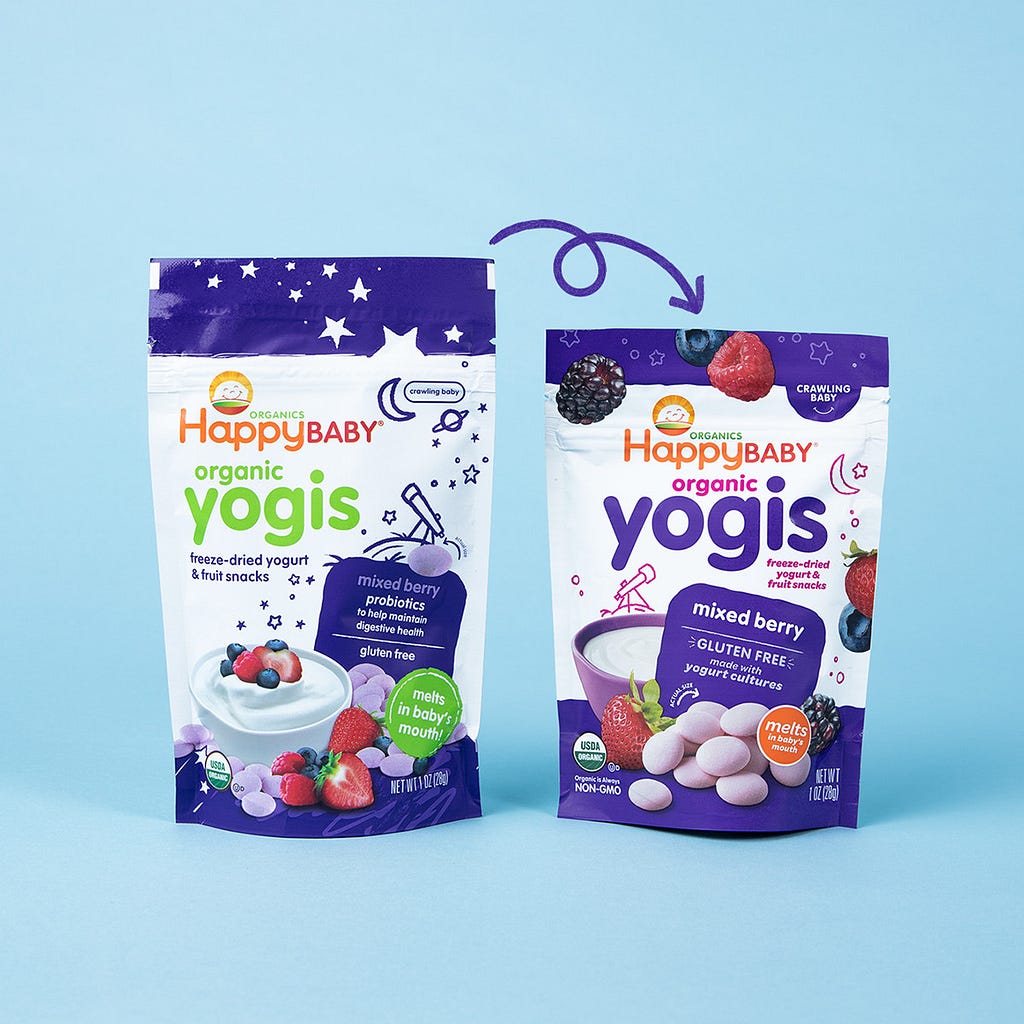
Why Business Needs to ‘Democratize Organic’ If We’re to Achieve a More Inclusive and Regenerative Economy
B Corp Happy Family Organics Offers Programs to Increase Access to Organic Food and Nutrition Education
Created in Partnership with B Corp Happy Family Organics
Happy Family Organics CEO Anne Laraway is out to disrupt the organic food market by making the premium organic food category, often viewed as out of reach for many, accessible to all families. For Laraway and her team, there is no such thing as an inclusive or regenerative economy until everyone can participate. That’s why the company has embraced the task of “democratizing organic” — making organic food accessible to more people, from the field to the package to the store shelf to the family kitchen.
And the Certified B Corporation’s stats around these commitments are clear:
- More than 250,000 educational materials distributed to nonprofit partners since 2017, the majority of which have been dual-language (English-Spanish) materials.
- Three ongoing nutrition-education partnerships.
- More than 2.7 million meals and snacks donated over the last three years — more than 407,000 so far in 2019.
- $100,000 worth of organic food donated to Puerto Rico hurricane victims in 2018.
- More than 34,000 families reached with a free, online expert chat service with registered dietitians and lactation specialists.

Making nutritious, organic food for children and their families available to everyone goes beyond Happy Family Organics’ philanthropic efforts — the company’s business model includes programming that increases access to organic food and education. For example, anyone who goes to the company’s website can access a free online chat service for support on breastfeeding, starting solids, and other pediatric nutrition questions and concerns.
To learn more about the ways Happy Family Organics votes every day through its business operations for better nutrition for all families and better agriculture practices for all farmers, we chatted with CEO Anne Laraway, Mission and Marketing Manager Marykate Maher, and Director of Sustainability Katie Clark.

What does it mean to “democratize organic”?
Laraway: Happy Family Organics’ mission is to change the trajectory of children’s health through nutrition — and we believe the way to do that is by “democratizing organic.” To us, that means making nutritious, organic food and nutrition education available to all families. We’re incredibly proud of our work to bring our mission to life and democratize organic in our country.

Why is that work necessary to build an inclusive economy?
Maher: An inclusive economy provides access to equitable resources for all families, no matter their background, income level or any other factor. One of the most basic and crucial of those resources is food. At Happy Family Organics, we believe that every parent should have the opportunity to feed their child organic food if they choose to, which is why democratizing organic — empowering parents to make educated decisions around feeding their children and making organic food accessible to all families — is so important to us.
How is Happy Family Organics voting every day through its business practices to build a more inclusive economy?
Maher: Forty-one percent of children in the United States live in low-income homes, and there are nearly 7 million participants enrolled in WIC each year. WIC, the Special Supplemental Nutrition Program for Women, Infants, and Children, is a federal and state grant program that provides supplemental food and health and nutrition services to families with children up to age 5 who are found to be at nutritional risk.
Happy Family Organics believes all families deserve access to organic options for their baby, which is why we developed our Clearly Crafted jars to meet the WIC standards. We have been working for the last two years to gain WIC approval for organic baby food in as many states as possible, so families can use their WIC dollars to purchase our Happy Baby Clearly Crafted jars and other approved organic foods. We have made great progress so far and are already reaching 40% of families using WIC with our organic food — but we are not stopping there!

How does your work on inclusion also tie in to building a regenerative economy?
Clark: Changing the trajectory of children’s health is not possible unless all children have a healthy environment to grow up in. At Happy Family Organics, we’re far more than producers of organic baby food. We aim to be pioneers in sustainable agriculture and manufacturing practices, knowing that the health of our planet affects the long-term health of all children.
What are some of the specific ways you are working with your products to do this work?
Clark: In June 2019, Happy Family Organics joined leading companies around the world in making a series of packaging commitments aimed at advancing toward a circular economy — becoming the first organic baby food brand in the U.S. to pledge to make its packaging fully reusable, recyclable or compostable by 2025. Currently, 75% of our packaging by weight is recyclable, but there is plenty of work to do to get to 100%.

Developing a recyclable spouted pouch is one of our primary packaging initiatives. We are actively working with our suppliers to develop recyclable packaging formats that meet our technical needs. We are close to a solution that could be compatible with certain recycling markets, but the infrastructure needed to ensure this packaging would be recycled in practice is still not available at scale. To that end, we are also working closely with groups such as Closed Loop Partners, Sustainable Packaging Coalition, the Recycling Partnership, and OSC² to address the systemic issues that prevent packaging from being recycled.
What are some of the specific ways Happy Family Organics is voting for a new way of doing business in how it works with its supply chain to build a regenerative economy?
Clark: We’re excited about a growing movement underway to do more to protect our planet through regenerative farming practices. Regenerative agriculture takes farming back to its roots, using time-honored methods that improve soil health, conserve water, and restore ecosystems. It also ensures fair working conditions and a fair wage for farm workers. The result is more productive farmland that helps to mitigate climate change by pulling extra carbon out of the atmosphere and putting it back in the ground, adding valuable nutrients to the soil.
We are investing more than $100,000 between 2018 and 2019 in on-farm grower education, helping some of the farmers that we source from learn more about regenerative methods such as improved composting, which creates richer, healthier soil that helps to mitigate climate change.
How is Happy Family helping to create a more inclusive environment at Champions Retreat?
Maher: Happy Family Organics is proud to be the longest consecutive sponsor of the Champions Retreat! We find the Champions Retreat to be an incredibly valuable opportunity for leaders within the movement from a vast array of businesses and backgrounds to connect, inspire and share ideas. This year, we are proud to sponsor the first-ever offering of child care at the retreat, and to share our education materials and products with parents in the designated lactation space.
B the Change gathers and shares the voices from within the movement of people using business as a force for good and the community of Certified B Corporations. The opinions expressed do not necessarily reflect those of the nonprofit B Lab.

Why Business Needs to ‘Democratize Organic’ If We’re to Achieve a More Inclusive and Regenerative… was originally published in B the Change on Medium, where people are continuing the conversation by highlighting and responding to this story.